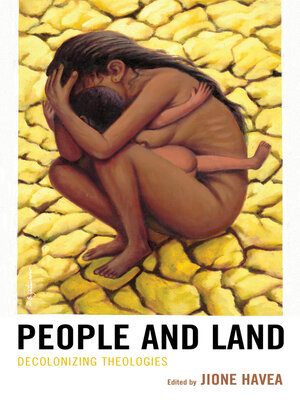
Sign up to save your library
With an OverDrive account, you can save your favorite libraries for at-a-glance information about availability. Find out more about OverDrive accounts.
Find this title in Libby, the library reading app by OverDrive.



Search for a digital library with this title
Title found at these libraries:
| Library Name | Distance |
|---|---|
| Loading... |
Empires rise and expand by taking lands and resources and by enslaving the bodies and minds of people. Even in this modern era, the territories, geographies, and peoples of a number of lands continue to be divided, occupied, harvested, and marketed. The legacy of slavery and the scapegoating of people persists in many lands, and religious institutions have been co-opted to own land, to gather people, to define proper behavior, to mete out salvation, and to be silent.
The contributors to People and Land, writing from under the shadows of various empires—from and in between Africa, Asia, the Americas, the Caribbean, and Oceania—refuse to be silent. They give voice to multiple causes: to assess and transform the usual business of theology and hermeneutics; to expose and challenge the logics and delusions of coloniality; to tally and demand restitution of stolen, commodified and capitalized lands; to account for the capitalizing (touristy) and forced movements of people; and to scripturalize the undeniable ecological crises and our responsibilities to the whole life system (watershed). This book is a protest against the claims of political and religious empires over land, people, earth, minds, and the future.
The contributors to People and Land, writing from under the shadows of various empires—from and in between Africa, Asia, the Americas, the Caribbean, and Oceania—refuse to be silent. They give voice to multiple causes: to assess and transform the usual business of theology and hermeneutics; to expose and challenge the logics and delusions of coloniality; to tally and demand restitution of stolen, commodified and capitalized lands; to account for the capitalizing (touristy) and forced movements of people; and to scripturalize the undeniable ecological crises and our responsibilities to the whole life system (watershed). This book is a protest against the claims of political and religious empires over land, people, earth, minds, and the future.







